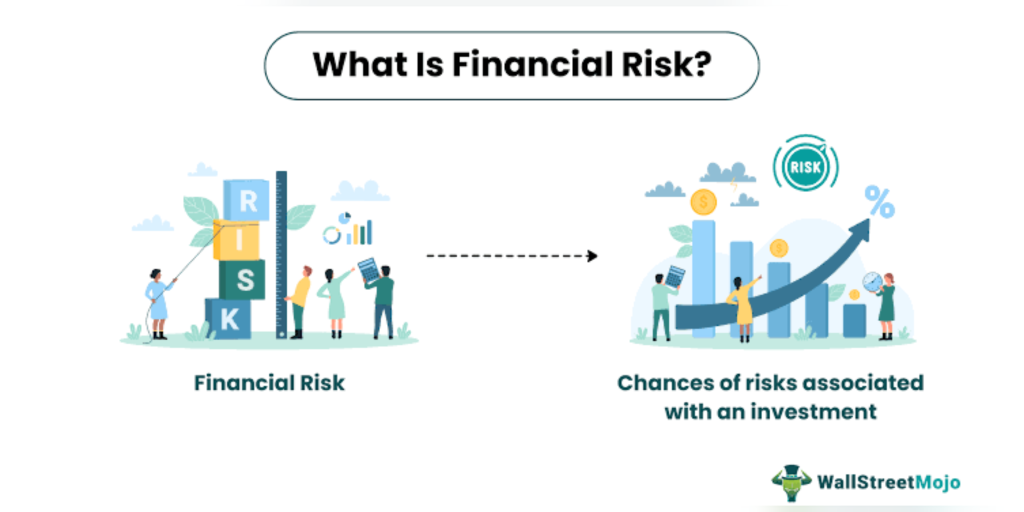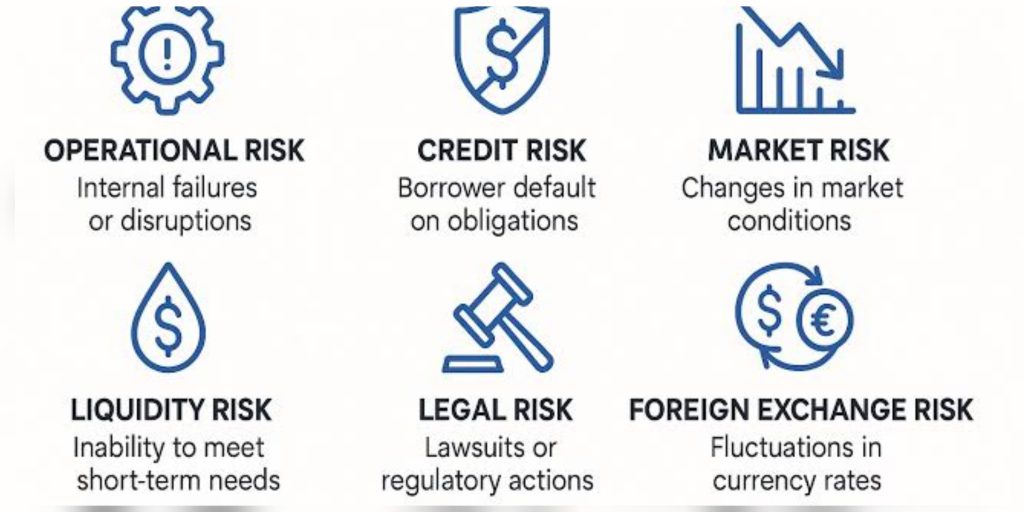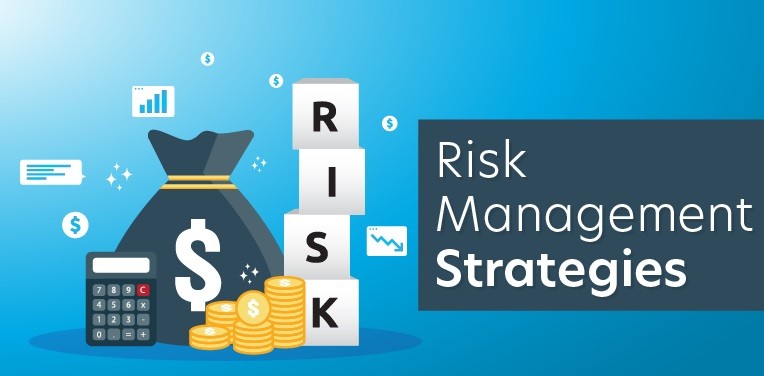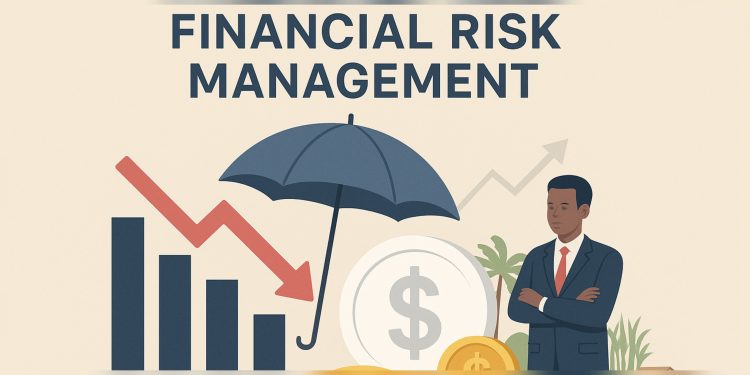Financial risk management is the process of identifying, analyzing, and mitigating potential financial risks to protect an individual or a firm’s economic value.
What Does Financial Risk Means?

Financial risks are events or occurrences that have an undesirable financial outcome or impact.
These risks are faced by both individuals and corporations alike.
It refers to the possibility of losing money and is an inherent part of any business venture.
It can affect the financial stability and business operations of a company.
Key aspects of Financial Risk
Identification and recognizing potential financial risks, such as market, credit, and operational risks.
Quantitatively evaluating the identified risks and their potential impact.
Response to deciding whether to accept, mitigate, transfer, or avoid the risk, using tools like financial instruments to hedge against it.
Monitoring and continuously tracking and reviewing the effectiveness of the risk management strategies over time.
Common types of financial risks

Credit risk: The risk of borrowers defaulting on their loans.
Market risk: The risk of losses from factors that affect the overall performance of financial markets.
Liquidity risk: The risk of not being able to meet financial obligations when they come due.
Operational risk: Risks arising from internal processes, people, and systems, or from external events.
Individuals face financial risks in many aspects of their lives.
These risks comes in different form, which are;
Risk of unemployment or loss of income, which includes unemployment, underemployment, health issues, disability, and premature death.
Also risk of higher or unexpected expenses, which includes incurring higher expenses than budgeted or having to deal with unforeseen emergency expenses.
Risk related to assets/investments which includes potential declines in the value of assets/investments, as well as potential damage and theft of assets.
Risks related to debt or credit financing, this includes being unable to service credit card debt, asset loans, mortgages, and so on. For corporations and financial institutions.
How to Manage Financial Risk

Financial risk management is the process of identifying, analyzing, and mitigating potential financial risks to protect a firm’s economic value.
It involves a cycle of steps including identifying risks, assessing their impact, choosing a strategy to respond, such as avoidance, retention, or transfer, and then monitoring the results.
This helps minimize losses and maintain financial stability.
Why it’s important to manage Financial Risk
It is important to manage the risk in finances because, It’s minimizes financial losses.
Maintains the company’s financial stability.
Ensures compliance with regulations, and Helps a company navigate economic uncertainty.
Strategies To Deploy in managing Financial Risk

Strategies are plans of action or policies designed to deal with financial risks.
The main financial risk management strategies include risk avoidance, risk reduction, risk transfer, and risk retention
Managing financial risk for both individuals and corporations starts by working through a four-stage process that includes the following steps:
- Identifying potential financial risks
- Analyzing and quantifying the severity of these risks
- Deciding on a strategy to manage these risks
- Monitoring the success of the strategy
4 Strategies To Financial Risk Management
There are various risk management strategies available to both individuals, corporations, and financial institutions.
At the individual level, some risk management strategies include:
Risk avoidance, by eliminating activities that can expose the individual to risk.
For example, an individual can avoid credit/debt financing risk by avoiding the usage of credit to make purchases.
Risk reduction, by mitigating potential losses or the severity of potential losses.
For example, an individual can diversify their investment portfolio to reduce the risk that their investment portfolio experiences a severe negative drawdown.
Risk transfer: it is the process of transferring risk to a third party.
For example, an individual may purchase a life insurance policy to offload the risk of premature death to the insurer.
Risk retention: the process of accepting responsibility for a particular risk.
For example, an individual deliberately not insuring their property.
At the corporate level, the same risk management strategies may be applied, but in slightly different contexts:
Risk avoidance: elimination of activities that can expose the corporation to risk.
For example, the corporation can avoid expanding operations to a geographical area that has high political and regulatory uncertainty.
Risk reduction: mitigating potential losses or the severity of potential losses.
For example, a corporation may use hedging on foreign currency transactions to reduce their exposure to currency fluctuations.
Risk transfer: the process of transferring risk to a third party.
For example, a corporation may purchase insurance on their property, plant, and equipment to transfer the risk of damage and theft to the insurer.
Risk retention: the process of accepting responsibility for a particular risk.
For example, a corporation may accept risks of volatile input costs without using any hedging or insurance.
Difficulty arises in deciding which strategy to utilize for a particular risk.
It comes down to the nature of the risk and the individual’s or corporation’s current risk appetite.
Risks should be fully understood before deciding on the appropriate strategy to remedy them.
Example of Risk Transfer: many individuals with spouses and children purchase life insurance to protect against the risk of premature death.
They want to insure against the loss of income and ensure there is an income safety net for surviving family members.
Example for Risk Retention: lumber producers are able to hedge their exposure to lumber prices with the use of futures contracts.
However, many choose to retain this risk and accept commodity price fluctuations.
It is, in fact, the industry standard.
If a lumber producer were to hedge their risk, they could place themselves at a disadvantage if the commodity price begins to move in a favorable direction.







